- Home
- neetha Napew
Jinian Stareye Page 2
Jinian Stareye Read online
Page 2
‘And if nothing got killed?’
‘Then we look around until we find an event where somebody did get killed.’
‘Makes me feel like a Ghoul,’ he said.
So did I, to tell the truth, and only the knowledge that whatever we would see had already happened and could not be changed made me feel any better about it. We took a deep breath, held hands once more, and stepped back into the temple.
Gray and huge and the roar of angry voices. This time I paid more attention. I looked straight up, trying to see what was above us, but there was only a receding immensity of stone and smoke. There was no roof. We were below a tower. Huge doors on all sides of the room opened to admit hurrying figures, misty, dim, not fully remembered, I guessed. They might have been Eesties. I got the impression of fluttering robes or ribbons around a low curbing at the center of the place. Peter pressed me tightly against the stones, becoming a kind of wall between me and whatever was coming. The roar was louder, a furious chanting. Then a cracking noise. High above us. Huge. Like a tree coming down in a forest. That creaking again, as when something tries to remain whole but is destroyed fiber by fiber. And then it let go.
I heard it coming. An agonized scream of metal. A tumbling clangor, banging down the tower with thunderous crashes. It was only a few instants before it hit. Shattering. Shards of metal flying in all directions. One buried itself in the wall beside me. Voices crying out, weeping. The furious roaring outside suddenly stilled, as though in horror at what had happened. Then one voice raised, then another, rebelliously cheering.
Struggling gray forms on the floor, one or two. I went toward them, trying to feel where one might go out. No door. No exit. Even close beside the writhing figures, I couldn’t see them clearly, and the revelation almost stopped me in my tracks. The sound was as clear as my own voice, but these figures were misty, which meant that Lorn didn’t remember them very well. It remembered the sound and those outside, but not these. Just something, a something dying. There was a rush of unfocused anguish, a kind of thinning in the atmosphere of the place. I grabbed Peter’s hand and moved toward it, trying to find it. It was stronger beside the monument he had climbed upon earlier, shattered now. The anguish I felt was anguish at the destruction of this! Not at the death of the creature, but at this shattering.. . .
I moved in the direction of the feeling, pulling Peter along by one hand, not certain where.
And came out.
We were standing in a desert. Nothing was happening. A chilly wind blew a few grains of sand restlessly across the parched soil. Bristly growths spiked here and there on the limitless flat around a jagged line of broken statues.
‘Don’t move,’ I said, frustrated. ‘I think we came in the wrong direction.’ I tried to breathe, gasping, as though I had been crying. What was it?
‘What were you after?’
‘There was this feeling of anguish. Grief.’ I stopped, unable to go on. The feeling was still there, all around me, a sadness so palpable it stopped my breath. I gritted my teeth, did a small concentration spell, and was able to breathe once more. I went on, ‘At first I thought it was grief over something dying, but Lom didn’t even remember the things that were dying, so it had to be the grief over something else. Maybe grief over the destruction of the carving. Perhaps it was a work of art.’
‘Maybe not.’ He mused over the unchanging scene. ‘It could have been a monument. A cenotaph, maybe. A memorial to someone or something dead which Lom did remember. And these may be more of the same.’ He gestured toward the shattered statues.
There was a funerary air to the place. Solemn. Still. No rush or fury of life. Only the barren soil, the keening wind, the stark bulk of the carved stone against a line of distant mountains. The statue nearest us looked away from me, to one side, staring into eternity. I couldn’t tell what it was from this distance, but I was afraid to go closer. I didn’t want to leave the place we had come in without marking it. And how did you mark something in a place like this? I tried scraping away at the sand beneath me. It scraped very nicely, then slowly filled itself up like oozy mud. Evidently I could have only a temporary influence here. I tried breaking a branch off a thorny bush. It broke, nipped my finger with a thorn, quietly dissolved in my hand, and reappeared on the bush. The hole in my finger was still there. ‘We can’t make any lasting changes, Peter. It restructures itself.’
‘If we can’t make any changes ...” His voice trailed away as he stared at me. I knew what he was thinking. If we couldn’t make any lasting changes, then how were we to have any effect on Lom’s mind? He broke off the thorn branch I had broken. It dissolved in his hand and reappeared on the bush. He broke it again, stubbornly, and went on doing it while I watched, wondering what he thought he was doing.
At about the dozenth break, the branch did not dissolve right away. At about the twentieth, it stopped dissolving altogether. He stood there, holding the branch, watching it, scratches all over his fingers. ‘It seems to respond to persistence,’ he said, sucking his thumb.
I ventured, ‘I’d like to take a look at that statue, the closest one, but I’m afraid to lose the place we came in.’
‘I’ll stay here,’ he offered. ‘Perhaps I can get some bearings.’ It was true there were mountains around the edge of the place, and other monuments scattered out in several directions. One should be able to take sightings on several things and locate the spot. I left him at it and trudged away to the nearest monument.
Sad. Oh my sadness doesn’t half say it. The broken stone was awash with grief. It was that same unfocused grief I had felt before. Lom’s grief, not mine. I could not understand it. I could only feel it, and feeling it was more than enough. I leaned against the plinth on which the monument sat, making my lungs behave.
Chunks of the pedestal had been broken away. Great riven stones lay about, and the edges of the breaks showed no signs of weathering. When it was new it must have been an imposing thing. I’m not sure what kind of thing. Not a d’bor, but something rather like that. Something huge and majestic, solemn and marvelous. Not merely a creature, but a Creature of creatures. As the D’bor Wife had been. As Gobblemole and Flitchhawk had been. Looking on that carved face, I was quite sure it had been a wonderful being. It had the same feel to it as the Wind’s Bones on Bleer. It might have been one of those mighty, ancient creatures as it had appeared when alive. And the statue wasn’t a grave marker. Nothing was buried under the monument. A creature like that may be killed, but it doesn’t just die and it can’t be buried. No, this was a memorial to some mighty and wonderful creature that had reached its end, elsewhere, perhaps far away. I leaned against the monument to feel it pressing into my thighs, solid, like real stone. I scraped a hand across a crumbled place and stared at the palmful of gravel. It didn’t dissolve. I trudged back to where Peter was waiting, notebook in hand, busy with his pen.
‘I’ve taken sightings,’ he said. ‘I think we could get out again.’
‘I’ve been taking bits of things.’ I showed him my specimens. ‘This place is variable. Those monuments are as real as I am. They break and stay broken.’
He shook his head over this anomaly, but there was no point in discussing it. I think we both felt it was wiser just to go on, gathering experience, learning what we could. So we tried the exit to the temple to be sure it still worked, one step back into the roaring gray space, then one step back into the desert. Both were unchanged. Each time we entered the temple, no matter where we entered from, we got there before the thing fell down.
Back in the desert, we went to the monument. ‘It feels very sad around here,’ I said, ‘So this is the direction we want to go.’
Mutter mutter. He sounded disgusted.
‘What?’ I asked him. ‘I didn’t hear you.’
‘I was just saying it was an odd direction. Go five paces angry, turn grief-stricken, and take ten paces in a generally sad direction.’
‘It may come to that.’ He meant it to be funny, but it wasn�
�t. ‘Can’t you feel it?’
‘Not really. I’ll take your word for it.’
‘How come I can feel it and you can’t?’
‘Because that’s your Talent. Empathy. That’s how you talk all those beast languages. You empathize and just naturally understand them. This is just another kind of language.’ He was feeling around the base of the monument, walking to and away from it, circling away from me to the left. ‘You understand these things on a nonverbal level. . . .’
He didn’t come around the other side. I waited, carefully not moving. Silence. No Peter. Only the wind. My teeth were clenched so tightly that my jaw ached. I kept telling myself he was all right, had always been all right, would always be all right. There was a small sighing, as of a door swinging open or closed, and in a moment he backed into me. ‘Found it,’ he said, taking me by the hand and tugging me forward once more.
And we came out in the village of Betand as it had been a thousand years before.
Not that I knew that right away. What we saw was so raw and strange that neither of us tried to identify it. We did, however, catalog it as we stared. One street, dirt - mud, rather - deeply rutted and hideously ugly. Two stark wooden buildings with signs saying they sold farm stock. Other wooden stores, some a little grayer, which sold equipment. Small groups of people in the street, families with children, some with a few horses or zeller, most with carts piled high with household goods. A tavern; The Blue Fustigar. Even then I didn’t identify the place.
It wasn’t until I turned to see Vitior Vulpas Queynt emerging from the tavern that I knew where I was. It was Queynt, not one whit different in height and size than when I had seen him last, and yet in some way much younger looking. It was the expression on his face. Dissatisfaction. Annoyance. His expression was less like the Queynt I knew and more like Peter, full of jittery impatience. A much less poised expression than he wore now. ‘Queynt,’ I said.
He did not see us. Did not hear me. He went past us as though we had been smoke. Behind him came a depressed-looking couple with a child, the woman calling, ‘Sir, sir.’
That’s when I knew where we were. Betand. The beginning of the city of Betand. When man was young upon Lom, scarcely come, and the rolling stars were driving him from the Shadowmarches.
Peter had already figured it out. He was busy stripping leaves from a bush, seeing whether he could make them stay off. He couldn’t. ‘Newer,’ he breathed at me, his eyes unfocused. ‘This memory is newer. The newer the memory, the less effect we can have on it. What does it have to do with grief?’
‘Not grief. Destruction.’ I waved at the forests that stretched up the northern hills toward the marches. Everywhere were the stumps of trees in cleared fields. ‘That’s the common thread, Peter. You said it yourself. You used the word “traumatic.” The world was injured during each of those episodes. Destruction in the temple. Destruction of the monuments on the desert. Destruction of the forests here.’ I was right. None of it had really been about dying at all, and I wanted to cry. This wouldn’t lead us where we needed to go.
He must have seen my face. He pulled me close and we stood there for a long, wordless minute, me with my head on his chest, both of us watching Queynt talk to the couple. Then they went away. Queynt went back into the tavern. After a while he came out. We followed him around for a while, and after what seemed to be the better part of a day, he started out of town to the north. All this time we’d been waiting for the story to start over, and it hadn’t started over yet.
‘If this is an “event,” it’s a very long one,’ Peter said.
‘Does that mean it’s important?’
‘Who’s to say? I remember some things from my childhood in complete, exquisite detail, and so far as I know, they don’t mean anything. Except to me, of course. And you, maybe. Someday I’ll tell you.’ He smiled at me, teasingly, and I knew he did it just to cheer me. ‘Do you want to go after him?’
‘Peter, I’m not sure we have enough to eat. Somehow I thought there’d be food in here. You know. Roots. Berries. I didn’t expect it all to be shadows and pictures.’
He shook his head at me, being practical as he sometimes was, most surprisingly. ‘It can’t be all shadows, Jinian. It’s substantial. The Maze is substantial. You can see things growing in it from outside. Some of it has to be real. Like your brain. If you could walk around inside your own brain, you might be able to see the ideas, but you’d still be walking on something real. Cells. Flesh. Something.’ He reached out and stripped leaves and fruit from a thrilp bush beside the path, moodily waiting for it to dissolve.
And it didn’t. It lay there in his hand, dripping juice, smelling very ripe and real. I laughed. Couldn’t help it, I guess, he looked so discomfited. Mouth open. He had just told me some of it had to be real, but he hadn’t expected it to be the tree he was working at. My strained laughter made him laugh in turn, somewhat ruefully. He picked a hatful of thrilps, stowed them in his pack, and started after Queynt’s receding form, far in the northern distance.
‘Don’t know about you, Jinian, but I’m going to see whether he told us the truth or not.’
I ran to catch up. It seemed an insane, completely random thing to do, unlikely to lead us anywhere helpful. And yet - I had done the guidance spell. Heart’s Blood, Road Dust, lead-me-where-it-would. There had been those ripe thrilps, almost like an answer to a prayer. And there had been grief in Lom’s mind, grief about something. Perhaps this road was not as unlikely as it seemed.
Two
Memory
I have in recent years often reflected upon memory. One takes it so for granted. One remembers with such facile infallibility. And one finds with such shock - at least it was a shock to me - that memory isn’t truth.
This occurred to me first when I read Peter’s account of our meeting and the events around that time. The big things that happened were there, seen from a slightly different angle, perhaps, but intact. I remembered the Wind’s Eye and so did he. I remembered the Battle of the Bones, and in general he remembered it as I did. But many of the small things were totally different. I did not hear things he heard, even though we stood side by side when they were said. I did not see things he saw. And conversely, of course, I saw and heard things he did not. It struck me then, an interesting reflection without particular import, and I resolved in future not to be too insistent upon the truth of my own memories. I thought of the way Murzy had recalled old events. ‘I remember it this way,’ she said. ‘I remember it this way, but on reflection, I think so and so must have happened, and even that may not be true.’
I thought of the subject again as we followed the memory of Vitior Vulpas Queynt into the Shadow-marches. It wasn’t very long since he had told us the story of that journey - what had it been? A handful of days, no more, since we had been cozy in the tower room at Bloome, listening to his reminiscences. And now we followed him upon that same journey as remembered by another mind, as remembered by the world that held him and that, for some reason, dignified this event with absolute clarity in every detail. The farther we went, the more convinced I was that we had come upon the right trail all unwittingly.
Peter kept experimenting as we went, testing which parts of our environment were real and which mere images. I gave him one clue to the nature of our surroundings when I told him somewhat impatiently to stop picking rainhat berries because I was stuffed.
‘It’s been hours since I gave you the last one,’ he complained. He had generously given me most of them, over my objections.
‘It can’t have been,’ I muttered, ‘I can still taste them. Really, Peter. It was only a moment ago.’
‘No. It was when we crossed that last stream. All the way down this slope and through that forest at the foot of it. . . .’
It struck us both, simultaneously. Memory time, subjective time, might not be the same as ‘real’ time, stomach time. I put a finger on my pulse and counted as we followed Queynt across several leagues of forest. A few hundred pul
ses, more or lesss, for a lengthy journey that should have taken thousands of heartbeats. Peter was counting his breaths. We shook our heads at each other in disbelief, but Peter did stop picking berries. ‘Space,’ he muttered at me. ‘We’re probably not walking as far as we think we are.’
‘It certainly hasn’t tired me any,’ I admitted. ‘All of this is probably happening in quite a small place in the Maze.’
‘One would think large memories would take larger spaces,’ he objected, but he didn’t go on to say why. I thought privately that large memories might simply be more dense than others. Or perhaps they thin out with time. Probably a thousand years is no time at all for Lorn. Which for a human being is a fairly discouraging thought in some respects and a very encouraging one in others. One hates to think that all of existence is trivial.
It is better to be even a small part of something very large than a sizable part of nothing much.
We went along, Queynt stopping from time to time to talk with settlers, giving some of them money, waving his arms, talking persuasively. All of this was much as he had remembered it, except for the sadness. He hadn’t remembered the sadness, and Peter didn’t feel it. I seemed to be the only beneficiary, and I could have done well without it. When the tears started flowing down my face like a river, Peter took time to dry my face and make tender sounds, which helped a little. After that, I held on to his hand. The fact he couldn’t feel the pervasive emotion seemed to ameliorate it somewhat. There was a certain hard pragmatism about Peter - probably inherited from his mother, Mavin, since I hadn’t noticed it in his father, Himaggery, very much - that cut through sentimentality like a knife. Sometimes I hated it, but now I blessed him for it.
Lorn remembered night, and night came. Lom remembered morning, and morning came. Lom remembered the rock height Queynt had described. There were more trees than he had mentioned, more and closer. His rendition on the wood instrument was less expert and more plaintive than he had told us, and the tears flowed down my face again. By the time three days had passed and the Shadowperson moved out of the trees to stand singing upon the moor, I was in full flood. The beauty of what ensued evidently had captured the world’s attention as it did mine, enough at least to distract it from its sadness. There was no sadness in that singing, and it was more glorious in Lom’s memory than it could possibly have been in reality.

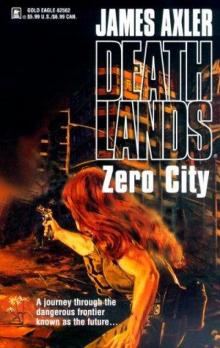 Zero City
Zero City Freedom Omnibus
Freedom Omnibus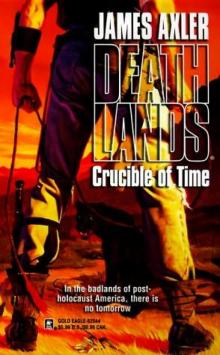 ACrucible of Time
ACrucible of Time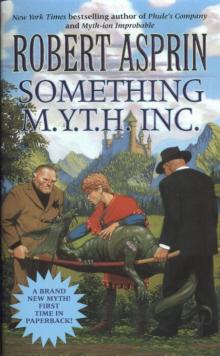 Something MYTH Inc
Something MYTH Inc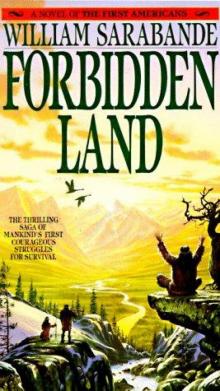 Forbidden Land
Forbidden Land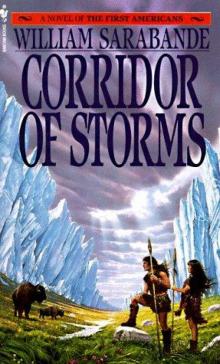 Corridor of Storms
Corridor of Storms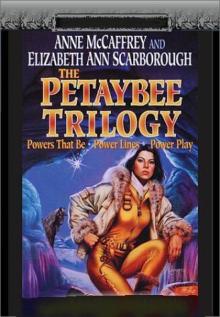 The Peytabee Omnibus
The Peytabee Omnibus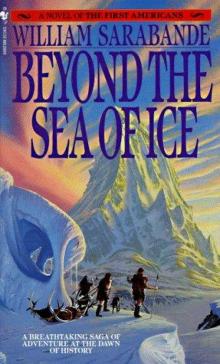 Beyond the Sea of Ice
Beyond the Sea of Ice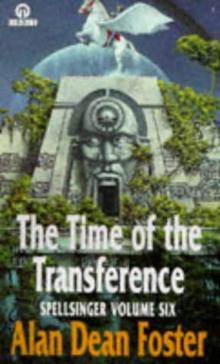 The Time Of The Transferance
The Time Of The Transferance EarthBlood
EarthBlood The Lexal Affair
The Lexal Affair The Web
The Web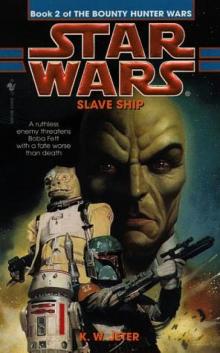 Slave Ship
Slave Ship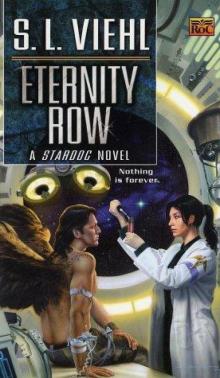 Eternity Row
Eternity Row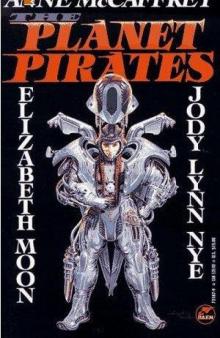 Planet Pirates Omnibus
Planet Pirates Omnibus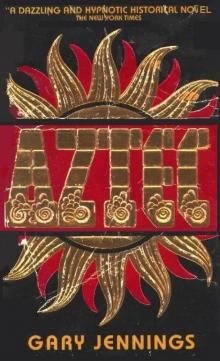 Aztec
Aztec The Awakening
The Awakening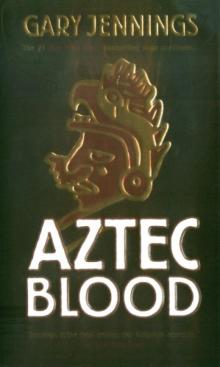 Aztec Blood
Aztec Blood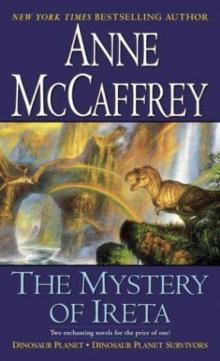 The Mystery of Ireta Omnibus
The Mystery of Ireta Omnibus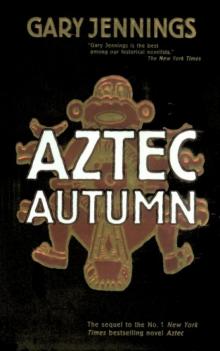 Aztec Autumn
Aztec Autumn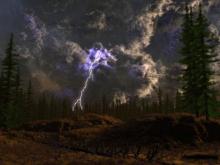 The Savage Horde
The Savage Horde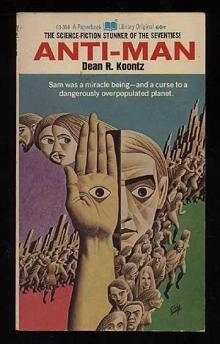 Anti - Man
Anti - Man Deep Trek
Deep Trek Starfall
Starfall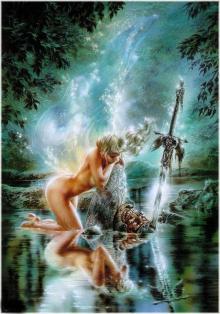 The Paths Of The Perambulator
The Paths Of The Perambulator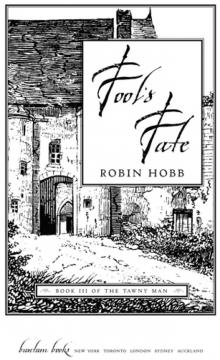 Fool's Fate
Fool's Fate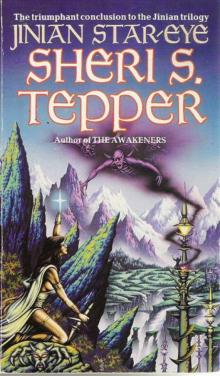 Jinian Stareye
Jinian Stareye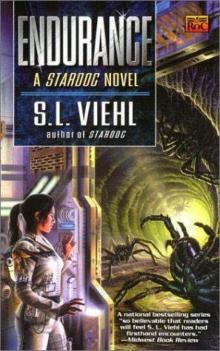 Endurance
Endurance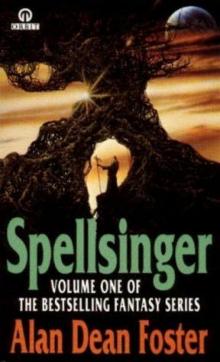 Spellsinger
Spellsinger Hybrids
Hybrids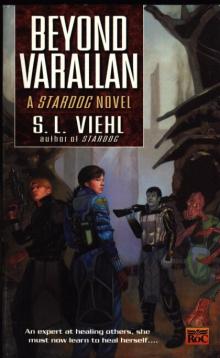 Beyond Varallan
Beyond Varallan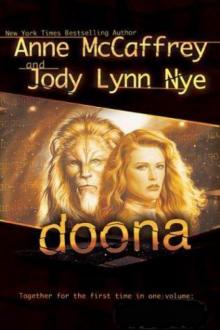 Doona Trilogy Omnibus
Doona Trilogy Omnibus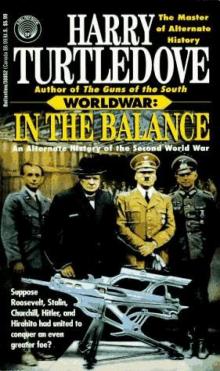 In th Balance
In th Balance Planerbound
Planerbound The Nightmare begins
The Nightmare begins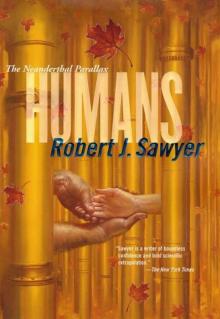 Humans
Humans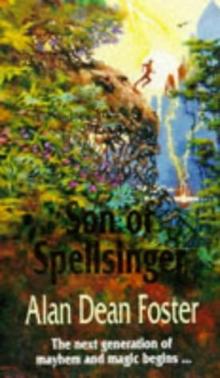 Son Of Spellsinger
Son Of Spellsinger